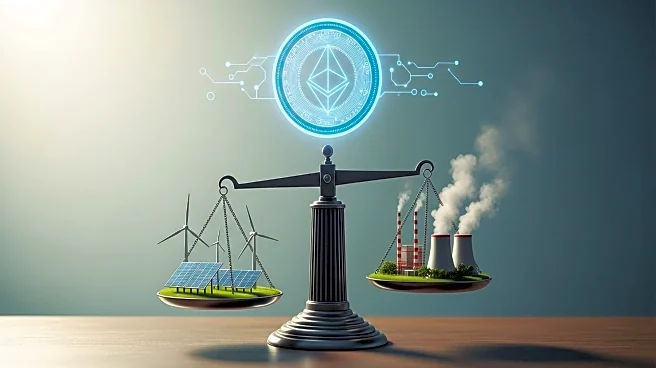What's Happening?
New York State Senator Liz Krueger has introduced a bill to impose excise taxes on the energy consumption of crypto mining companies operating within the state. The proposed tax structure is tiered, with no charge for miners using up to 2.25 million kilowatt-hours (kWh) annually, and increasing to 5 cents per kWh for those consuming over 20 million kWh. Notably, the bill exempts miners utilizing 100% renewable energy. This legislative move follows the expiration of a two-year mining ban moratorium in 2024, which had allowed clean energy miners to operate. The rising energy costs, which reached $0.08 per kWh in early 2025, have already impacted companies like TeraWulf, which reported a $61.4 million loss due to doubled costs relative to revenue.
Why It's Important?
The proposed tax could significantly affect the profitability of crypto mining operations in New York, a state already known for its high energy costs. By imposing additional financial burdens, the legislation may drive miners reliant on grid electricity to relocate to regions with lower operational expenses. This could lead to a shift in the competitive landscape, favoring companies that can harness renewable energy resources. The median cost of mining a single Bitcoin has surpassed $70,000, highlighting the narrow profit margins in the industry. The tax could exacerbate these challenges, potentially leading to a reduction in mining activities within the state and impacting local economies dependent on this sector.
What's Next?
If the bill passes, crypto mining companies will need to reassess their operational strategies, possibly investing in renewable energy solutions to mitigate the impact of the tax. The legislation could prompt a broader industry shift towards sustainable energy practices. Stakeholders, including mining companies and energy providers, are likely to engage in discussions to address the economic implications and explore potential adjustments to the proposed tax structure.









